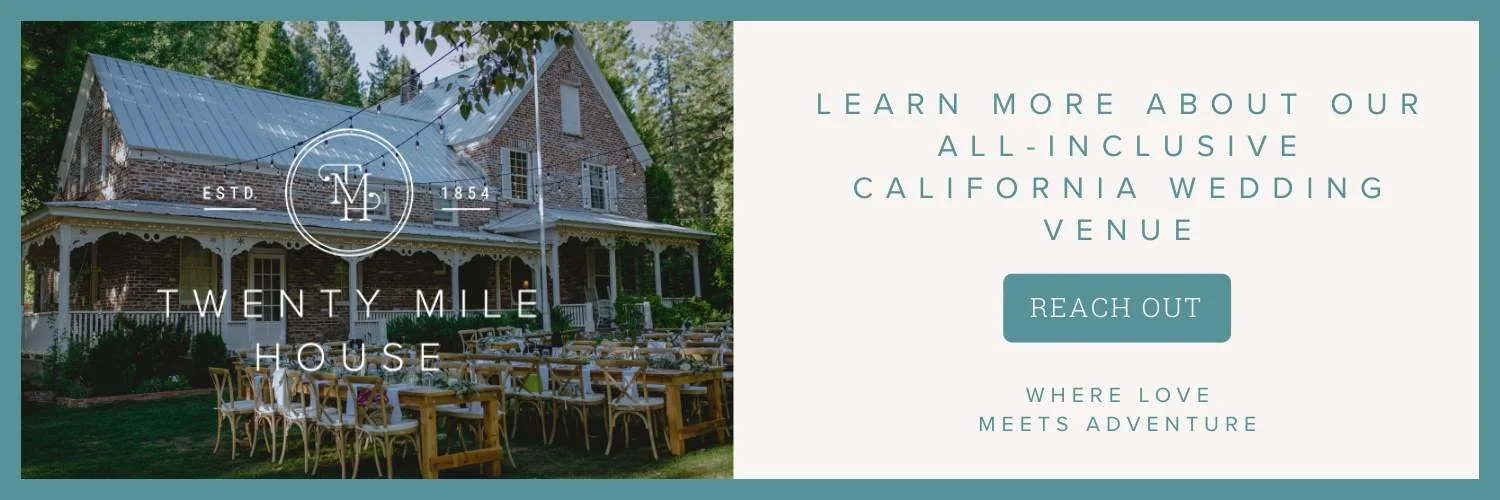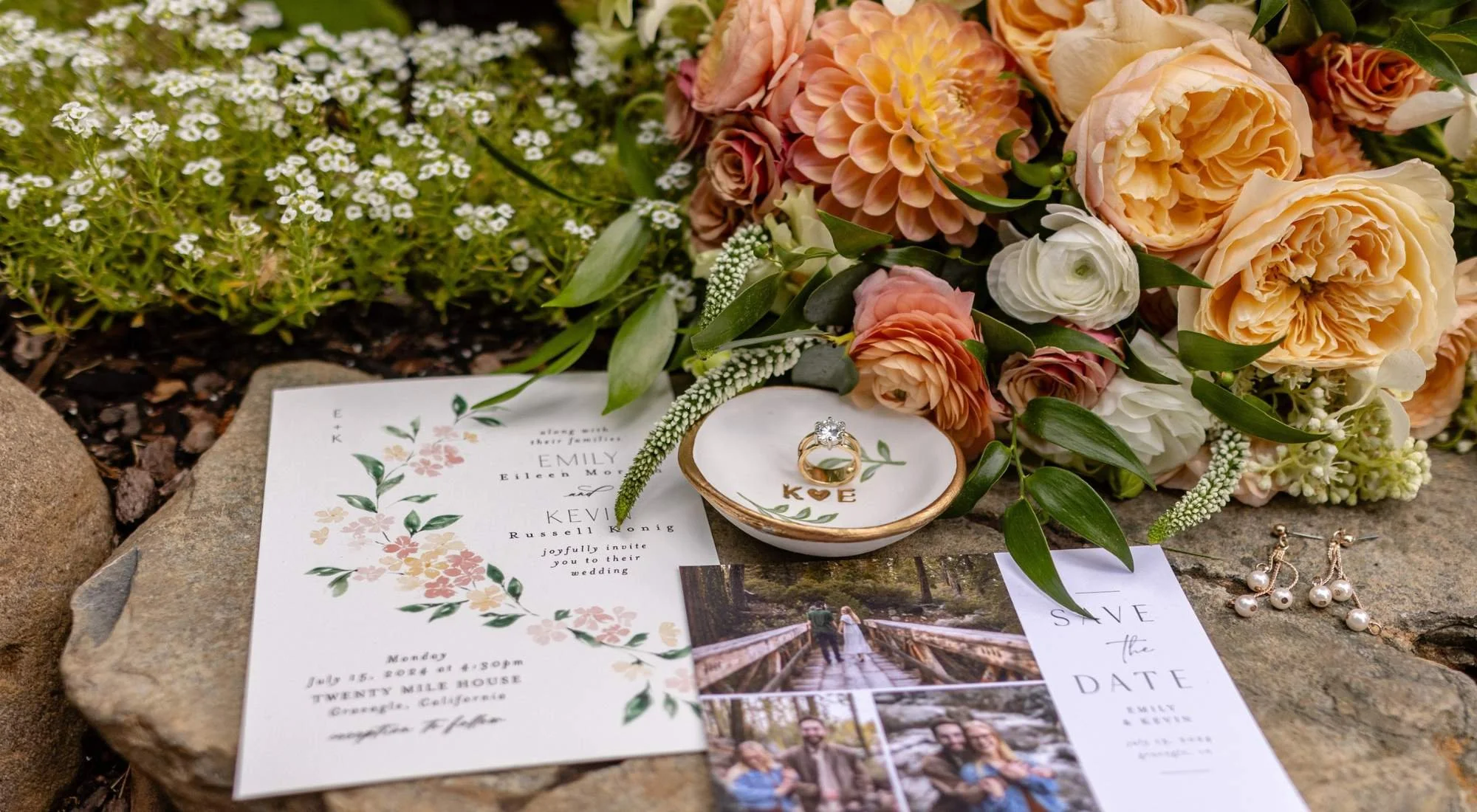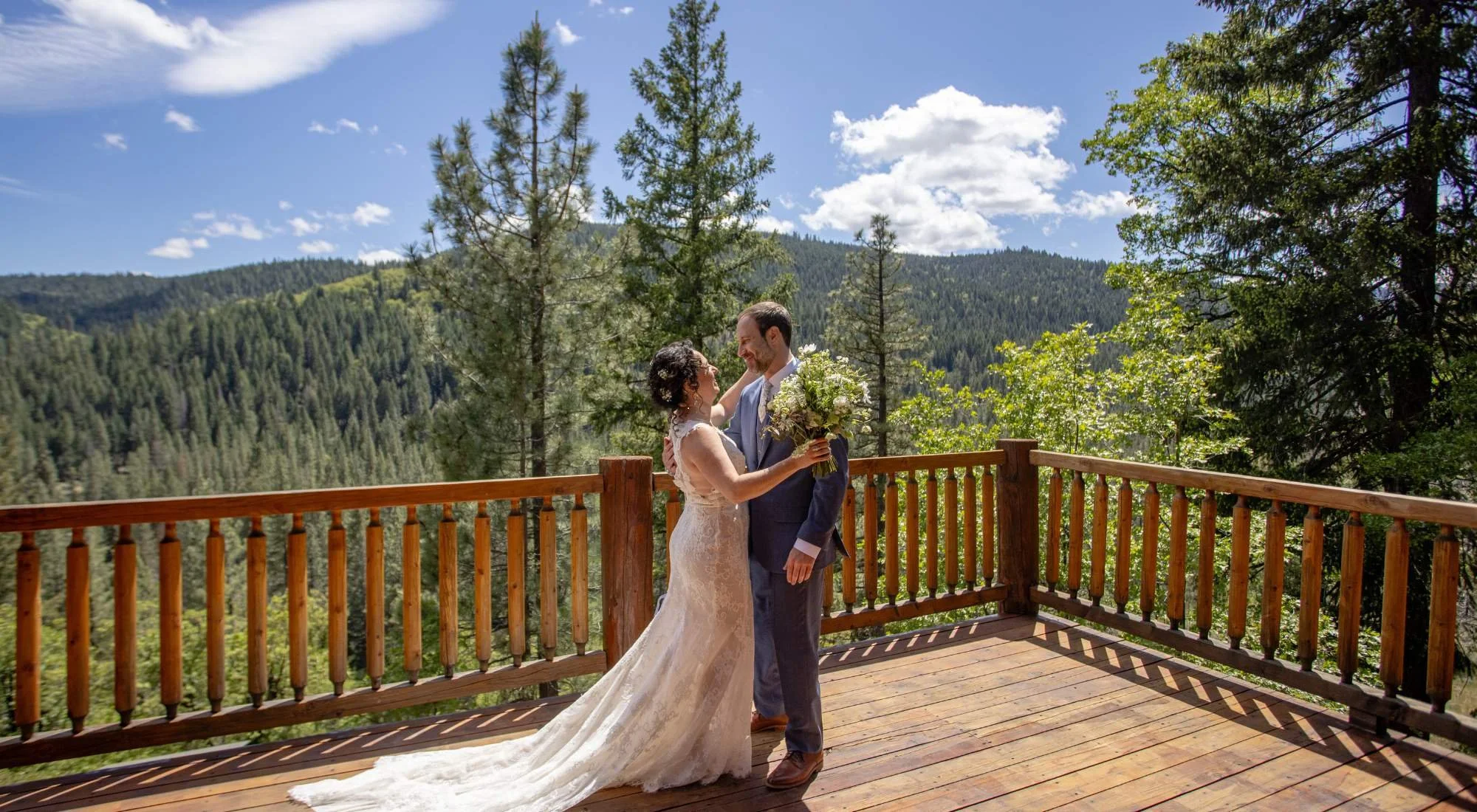Invest in Smooth Sailing: A Wedding Coordinator’s Contribution to a Successful Celebration
Your wedding day is one of the most magical moments of your life, and you deserve to enjoy it surrounded by loved ones rather than worrying about the details. And of course, every couple wants their celebration to flow smoothly, without the stress of wondering if something might fall apart.
That’s why relying on professional wedding coordination is so important. Trying to manage everything yourself can be overwhelming, but professional wedding coordination makes sure the day stays on track so you can focus on what really matters.
In this guide, we’ll walk through what coordinators do, the difference between planners and coordinators, how costs are determined, and why having these services included in your wedding’s venue package can give you the peace of mind that your celebration will unfold seamlessly.
Table of Contents
What’s the Difference Between a Wedding Coordinator and a Wedding Planner?
The terms "wedding planner" and "wedding coordinator" are often used interchangeably, but they serve slightly different purposes.
A planner is usually the person who helps you shape the big picture — the vision, the style, and the choices you’ll make in the months leading up to the wedding.
A coordinator steps in closer to the date to manage the timeline, confirm details with vendors, and ensure the day itself runs smoothly.
Which Is Most Appropriate for Your Wedding?
Deciding whether you need a planner, a coordinator, or something in between usually comes down to how involved you want to be in the process.
Some couples enjoy making every decision and only want someone to step in near the end to manage the logistics, so a coordinator makes more sense for them.
Others would rather have professional support from the very beginning to help design and oversee the entire experience, and a planner is their best choice.
Some couples fall somewhere in the middle. They may take care of the big decisions themselves — such as choosing the venue or selecting a caterer — but prefer to bring in a professional a few months out to make sure all the pieces come together. This type of partial planning can be a good balance of independence and support.
At Twenty Mile House, you won’t need to weigh these choices separately. Our venue package already includes services that cover the full spectrum — from early planning through the day-of coordination. It’s one of the reasons couples find the process here so stress-free: everything you need is built in, and our team has the experience to bring both roles together seamlessly.
How Much Does a Day-of Wedding Coordinator Cost?
Prices for a day-of coordinator can look very different depending on where your wedding takes place. The national average is usually around $1,000 to $1,200, but in popular destinations around Lake Tahoe, CA, the cost is often closer to $2,000. In large cities such as New York or San Francisco, it can reach $6,000 or more.
Service level also matters. A partial planning package, which helps with major details in the last few months before the wedding, often falls between $2,500 and $6,000. Day-of coordination, focused mainly on managing the schedule and vendors on the wedding day itself, usually ranges from $1,200 to $2,500.
At Twenty Mile House, you don’t have to worry about deciding which path fits you best. Because planning and coordination are both included in our all-inclusive package, couples can enjoy the right amount of guidance from start to finish, without the added cost of hiring separate professionals. And since our trusted vendors have worked alongside each other at the venue for years, they know how to operate as a team and how to use the space seamlessly — making your wedding day run that much more smoothly.
4 Factors Affecting the Cost of a Wedding Coordinator
The price of hiring a wedding coordinator isn’t the same for every couple, and several things can change what you’ll end up paying. While every wedding is unique, some factors have a bigger impact than others. Below, we’ll look at four of the most important — location, wedding complexity, experience level, and season — to give you a clear idea of what shapes the cost.
#1: Location
Where your wedding takes place has a major influence on what you can expect to pay for a planner or coordinator. In larger cities or regions with a higher cost of living, professional fees tend to be higher simply because of the market.
A full-service planner in New York or San Francisco, for example, will generally cost more than one in a smaller town or rural area. This difference doesn’t always reflect the quality of service but rather the economic realities of the location.
#2: Wedding Complexity
The scale and style of your wedding can have a big impact on how much coordination is needed. A small, intimate gathering with a handful of guests will naturally require less oversight than a multi-day celebration requiring on-site lodging for 200 attendees, multiple vendors, and layered design elements.
The more moving parts there are — from customized décor to complex timelines — the more time and expertise a planner or coordinator must dedicate, and that’s often reflected in their pricing.
#3: Experience Level
A coordinator’s level of experience is another factor that often shapes their price. Someone newer to the industry may offer lower rates as they build their portfolio, while seasoned professionals with years of weddings behind them typically charge more.
Their expertise, vendor connections, and ability to anticipate challenges all add value — and couples often find the peace of mind worth the additional cost.
#4: Season
Wedding costs often shift depending on the season. Coordinators and planners are busiest during the height of wedding season, which usually means higher demand and, in some markets, higher fees. Couples who choose dates in less busy months sometimes see lower costs or more flexibility in availability.
Wedding Day-of Coordinator Responsibilities: What Services Are You Paying For?
A wedding day feels effortless when someone is quietly handling the details behind the scenes. That’s the role of a day-of coordinator — to keep the schedule on track, guide the wedding party, and manage vendors so the couple and their guests can stay focused on the celebration itself. From the rehearsal and final walkthrough to the set-up, transitions, and breakdown, their responsibilities cover every stage of the event.
Management of Wedding Timeline
A wedding day has many moving pieces, and timing plays a big role in how smoothly everything comes together. The coordinator is responsible for making sure each part of the day happens when it should — from the seating of guests to the start of the ceremony, the entrance of the wedding couple and wedding party, and the role of the officiant or musicians.
That same attention continues into the reception. Meals, toasts, and dances all need to happen in order and without long gaps so the celebration keeps its natural flow. When the timeline is managed well, the day feels seamless for everyone, and the couple can focus on enjoying the moment rather than worrying about what’s next.
Coordination of Vendors
Every wedding depends on a team of vendors working in sync. Florists, bakers, and décor providers all have to deliver and set up their work before the first guest arrives. During the celebration, caterers, musicians, and photographers each follow a schedule of their own, and they need someone to guide them so the evening flows as planned. Even after the last dance, there are rentals and equipment that must be returned on time.
Without coordination, these moving pieces can overlap or clash, leading to delays or confusion. A coordinator makes sure everyone knows where they need to be and when, handling questions and adjustments behind the scenes so the couple doesn’t have to step in.
Final Review of the Venue With the Wedding Party
In the days leading up to the celebration, the coordinator attends the wedding rehearsal to guide the final walkthrough of the venue. This is when the wedding couple and their party can see exactly how the ceremony and reception will be set up, practice entrances, and confirm the order of events.
The walkthrough also ensures everyone knows their role — from where to line up before the ceremony to when to walk down the aisle. By reviewing the flow of the day in the actual space, the wedding party gains confidence, and any small details can be adjusted ahead of time.
Oversight of Set-up and Breakdown
Before the first guest arrives, a coordinator makes sure the venue is ready. This includes:
Checking that the décor is in place
Seeing that the seating is arranged and labeled correctly
Making sure all spaces are clean and welcoming
Confirming that vendors have delivered what’s needed and that every detail matches the couple’s plan
Once the celebration ends, the coordinator also:
Oversees the breakdown
Ensures rentals are gathered
Checks that décor and personal items are packed up, and the venue is restored to its original state
With this oversight, nothing is left behind, and vendors can complete their work efficiently.
How Much Should You Spend on a Wedding Coordinator?
A fair price for a coordinator usually depends on your budget and the way they set their fees. Some coordinators work for a flat rate, others by the hour, and some charge a percentage of the overall wedding cost. What you spend should feel manageable within your larger budget, while still giving you confidence that the person you’ve hired can keep your day running smoothly.
At Twenty Mile House, you won’t need to calculate this cost separately. The work of a coordinator is already part of the package, so couples get the benefit of professional guidance and organization without adding another vendor fee to the budget.
Enjoy the Wedding Planning and Coordination Services at Twenty Mile House
At Twenty Mile House, couples don’t have to juggle the details on their own. The planning and coordination that so many people hire separately are already included here, making the process simpler and less stressful.
As an all-inclusive wedding venue in Northern California, we bring together the setting, the vendors, and the team to guide you through it all. The result is a celebration that feels organized and effortless, leaving you free to enjoy the day with the people you love. Reach out to our team to learn more about how we can create the experience you’ve been envisioning and help bring your wedding day to life.





